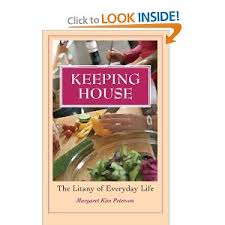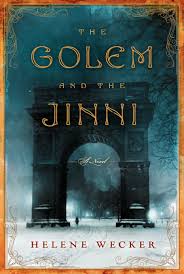Books I read this week: March week 1
These are the books I read this week. It’s funny, it seemed like I hadn’t read a lot this week, but when I looked at the numbers, it was my second highest of the year for pages read.  I saw an article the other day about “How to Read a Book A Week”, and I just laughed. If  I wrote that article the only text would be: “Find a book that looks interesting. Read.” I read fast, but I certainly don’t read all day, every day. You find time to do the things you want to do. If you want to read, you will find time.
The Butterfly Sister: A Novel by Amy Gail Hansen is one of the books I’ve broken my readolution for. The blurb was just too enticing. Ruby is a college student who dropped out before graduation. While working on her thesis about women authors who commit suicide, she begins an affair with her professor, and begins to have strange visions that cause her to believe that she’s going mad. Months later, a trunk belonging to her former roommate is delivered to her by mistake, and when she goes to return it, she discovers that the girl has been missing for two days. As she gets drawn back to her college to investigate, she has to face her past and risk her sanity again. Part of the book is set at the college, and you know I’ve been in a “books at school” mood, so that was nice. Another part is set in New Orleans, which I love and have been missing recently, so that was also an enjoyable component. Without nailing anything down as a hard and steadfast moral of the story, the book looks at societal institutions that silence women, factors that drive  intelligent, artistic women to take their own lives, and the effects of guilt. It was a very thought provoking book, I enjoyed it a lot. A beautiful passage:
I read only a sentence before I felt the stitches in my heart- the ones I’d sewn up daily since I left Tarble- unravel. I came undone at a handful of words.
Keeping House: The Litany of Everyday Life by Margaret Kim Peterson is one of my favorite books of all time. It is a gorgeous, well thought out look at how the things we do everyday to manage a house (laundry, dishes, vacuuming) are parallels for things that the Lord does for us. Being a housekeeper or doing housework is so often looked down upon, and not only does this book lay out why housework is important from a spiritual perspective, but it also clearly explains why it is important from a social perspective. Housework is something that has to be done. But if we believe that we are “above” doing such things, its a very slippery slope to viewing those who do that work as lesser.
The problem here should be obvious. Is the smart thing to do with respect to housework is to hand it off to someone else, this says something about people who end up doing the housework: they are laboring at work that is intrinsically contemptible. It is a small step from regarding the work as contemptible to regarding the worker as contemptible. Add to this that paid domestic workers  are almost all women, many of them poor and brown-skinned and imported from halfway around the world, and all of them working in non-public spaces when it is easy to mistreated and have no witnesses and no recourse, and you have a recipe for injustice at least as great as the taken-for-grantedness of housewives and their labor that was so deplored by the contributors to Ms. magazine and the rest of the feminist movement.
Now, Peterson is very clear that having someone in to help is not always a bad thing, and she’s not talking about overwhelmed mothers who already have a million things on their plates. But she is encouraging in the idea of the benefit of doing these things ourselves.
There is a tendency, I think, on the part of those of us who are well fed, clothed, and housed to imagine that the needy people to whom Jesus refers in Matthew 25 are people we don’t know- the sort of people who are served at homeless shelters and soup kitchens, at which we ought therefore to volunteer at least occasionally. But housework is all about feeding and clothing and sheltering people who, in the absence of that daily work, would otherwise be hungry and ill-clad and ill housed.
There is undoubtedly more to the merciful service that Jesus describes in Matthew 25 than caring for the daily needs of members of our own households. Housework is a beginning, not an end. But it is a beginning – not a sidetrack, not a distraction, but a beginning, and an essential one at that-
I seriously could quote from this book all day long. I’d say a good 85% of my copy is highlighted. It’s just such a beautiful meditation on the meaning of home, and an intimate reading of our relationship with God.
Active engagement with fundamentally physical practices like housekeeping can be a way of remembering that a properly human life is a life of service in and through the body. It was so for Jesus, and it is so for us.
When God created the heavens and the earth, he started with chaos and ended with a finely differentiated and beautiful universe. Housework is all about bringing order out of chaos.
That last quote gets me through a lot of days. 🙂
I honestly can not recommend this book highly enough. I want to buy it for everyone I know. It’s such a different perspective than the one we are usually fed, and it speaks to my soul.
The Golem and the Jinni  by Helene Wecker is one of the best books I have read in a really long time. You know that feeling when you get into a perfectly temperatured swimming pool and you just slightly push away from the wall and just float in the perfectness? That’s how I felt when I started reading this book. I was instantly drawn into the magic and just floated along the whole book. It reminded me of The Night Circus in that way- I knew I was in for a glorious ride.
The book is set in 1899 in New York. Immigrants are flocking into the country, but two very unique immigrants are at the center of this story. The first is Chava, a lifesize golem made of clay that perfectly resembles a human woman. She has been created to be the wife of a man travelling to New York from Poland, and like all golems, is made to know his every wish and serve him. But her “husband” dies on the boat to the US, and she is left masterless and buffeted by the wishes and desires of every person she encounters. Â The second is Ahmad, a jinni from Syria, who finds himself released from a bottle in which he has been trapped for hundreds of years. He’s not a “granting wishes” kind of genie, but a creature made of fire, who is trapped in the body of a man. He can’t remember how he became trapped, and he doesn’t know how to free himself.
These two people, new to the country and its customs and ways, and unique not only in their species but in their identities within those species- golems are never masterless, jinni are not trapped in human form- try to navigate their way through a new life. They both have help along the way as they try to come to terms with who they are and who they should be. They struggle with questions of free will and destiny and obligation and accountability, and their story and the story of those around them is so artfully woven that it takes my breath away.
This is one of those books that you never want to end, but by the end you’re reading as fast as you possibly can because you have to find out what’s going to happen. It’s hands down my favorite book of the year so far. Â A lot of my favorite passages are dependent on context that I don’t want to ruin, but here are a couple that stand on their own. Two conversations between Ahmad and Chava- Ahmad speaking first in each.
“A man tells you to believe, and you believe?”
“It depends on the man.”
“You have such amazing abilities. Doesn’t it gall you to spend your days baking loaves of bread?”
“Should it? Is baking bread less worthy than other work?”
Now I’m reading Art & Fear: Observations on the Perils (and Rewards) of Artmaking by David Bayles and Ted Orland. It’s really good so far.  I needed to go with nonfiction so I didn’t feel like I was betraying Chava and Ahmad by jumping into another world too soon. 🙂
What are you reading?



